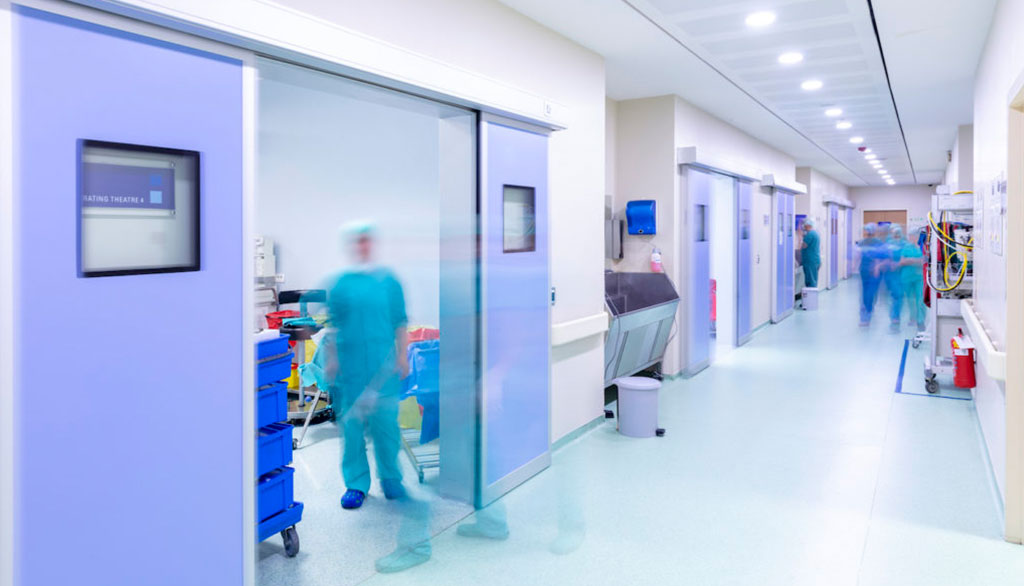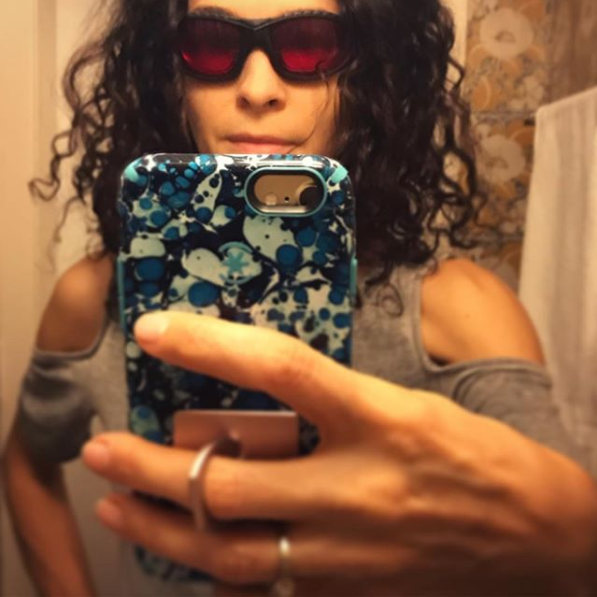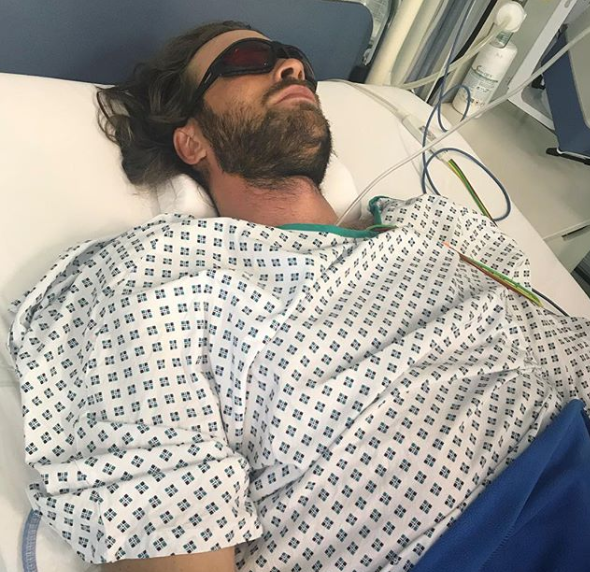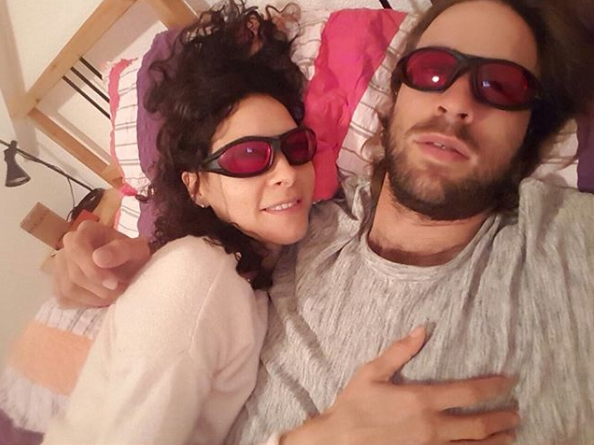Blue Light Blocking Glasses, Health & Wellness
How to Protect Your Mind and Body From Harsh Hospital Lighting

Article at a Glance:
- Emergencies can happen anywhere and at any time. In some cases, there is a variable recovery time after the emergency that often requires care in a medical facility.
- What people often fail to plan for in the case of a situation like this, is how to help the patient rest, relax and recover properly while they are constrained in an ER or urgent care center under artificial lighting for hours or days in the hospital.
- Hospitals are notorious for using harsh overhead fluorescent lighting. While these lights do enable doctors and physicians to treat their patients, they are taxing on the retinas of the human eye, and they obscure the human body’s ability to detect what time of day it is.
- This kind of disruption to your natural circadian rhythm, or sleep-wake cycle, can have further unforeseen (short and long term) consequences, like insomnia, headaches, weight gain, heart disease or even cancer if it is not prevented earlier on.
We recently got to interview a young couple that experienced their own emergency situation, which landed them in the hospital and prompted them to exercise caution with overexposure to harsh artificial lighting during their recovery.
Maria A. Petit is a certified Bulletproof Coach, Writer, and Health Food Consultant. She works remotely with clients online while she travels alongside her partner, Basir, who works as a DHV Certified Paragliding Instructor and Tandem Pilot. They met in Rio de Janeiro 4 years ago, and have since been chasing the paragliding seasons from Europe to South America. Check out the interview below.
TrueDark®: What happened? How did you end up in the hospital in Austria?
Maria: At the very start of May earlier this year, we had traveled to Austria where Basir had work lined up and a few paragliding competitions. This was going to be a big year for Basir because he had been selected to represent the Netherlands in the World Paragliding Competition to be held in Portugal in July. During the second competition into the season, another pilot accidentally flew into Basir from behind. He didn’t know that there was going to be a collision until he was already falling 80 meters. Luckily he was flying over a forest, which helped to break his fall, but ultimately he fell to the ground. Within 10 minutes, a rescue helicopter was at the scene and took him to the nearest hospital located in Lienz where his condition was evaluated. Upon seeing that he had a severe compressed fracture of the L2 vertebra, he was helicoptered to Klagenfurt Trauma Hospital to undergo surgery. I was at the scene of the accident and drove to the various hospitals, which were 2 hours apart by car. When Basir arrived at Klagenfurt Trauma Hospital, he was initially scheduled for the operation the next day; but when the doctor saw the scans, he changed the plans and insisted on operating that very night.
TrueDark®: We saw that you guys posted a picture of Basir resting in the hospital bed with his TrueDark® Twilights Classics on. Can you elaborate on what was happening in that scene? Had you just gotten a prognosis from the doctor? Was Basir resting in between tests?
Maria: The picture of Basir wearing the TrueDark® Twilights glasses was taken after he came out of the 5-hour spine surgery and was being held in the intensive unit with lots of monitoring machines emitting junk light. Even with the main overhead lights switched off the entire room was lit up light a Christmas tree from all the machinery being used to monitor his heart rate, blood pressure, breath, temperature, and so on. In these critical moments after the operation, we knew that his ability to rest and sleep was essential and that reducing exposure from junk light would be one less environmental aggressor his body would need to deal with. I’m very glad that we had the glasses for him to wear because he was in severe nerve pain from head to toe, unable to move for weeks after he had his surgery.
TrueDark®: What else can you say about the hospital lighting? What were the hallways and rooms like?
Maria: Even after Basir was transferred out of the intensive unit to a regular room, there was still junk light that we had to deal with. It was virtually impossible to get the room totally blacked out as a result of the lights being emitted from all the gadgets in the room. Additionally, the nurses were frequently coming into the room and turning on the lights multiple times during the night for check-ups and to administer medications. As such, keeping the TrueDark® Twilights glasses on during the evening helped Basir get through the interruptions and excessive lighting with the least amount of impact to his circadian rhythm. Getting as much sleep during the night despite all of the interruptions was essential to the recovery, and keeping the TrueDark® glasses on made this possible.
TrueDark®: Basir, how did you feel after you started wearing the glasses in the hospital? Were you primarily wearing the nighttime glasses to help you sleep, or were you also wearing the Daylights during the day?
Basir: The nurses were frequently coming into the room and turning on the lights multiple times during the night for check-ups and to administer medications. As such, keeping the TrueDark® Twilights glasses on during the evening helped me get through the interruptions and excessive lighting with the least amount of impact on my circadian rhythm. Getting as much sleep during the night despite all of the interruptions was essential to my recovery. Keeping the TrueDark® glasses on made this possible. I also wore TrueDark® Daylights™ during the day to offset the impact from the blue light being emitted from the lighting fixtures throughout my room, and from my personal devices (such as my iPhone and iPad).
TrueDark®: Maria, as the person spending time with Basir in the hospital, did you also notice the hospital lighting affecting you in any way?
Maria: YES! I spent a lot of time in the hospital and wore my TrueDark® Daylights™ when I visited Basir during the afternoons and early evenings to minimize the impact on the quality of my own sleep. I was also staying in hotels and Airbnb’s which did not always have blackout curtains in the bedroom. They often had very bad lighting in the bathroom, so I wore my TrueDark® Twilights before bed and kept them on while I slept. Once Basir was transferred to a full-time rehabilitation facility in the Netherlands, I was allowed to spend the weekend with him in the facility. As such, I also had to deal with multiple interruptions happening throughout the night by the nurses and the junk lighting in the room, so I kept the TrueDark® glasses on when I was sleeping over at the facility.
TrueDark®: Do you remember if the nurses and doctors were wearing any eye protection while working under junk light? Did any of them ask you what the glasses were for?
Maria: We definitely got funny looks from the doctors and nurses, and only a handful were curious enough to inquire what the glasses were all about. None of the hospital practitioners were wearing any protective gear while working under all of the junk light. It was truly shocking that in an institution that’s supposed to nurse you back to health, there wasn’t really any consideration for prioritizing simple and controllable environmental factors, such as light, that can make such a big difference to a patients’ recovery process.
TrueDark®: What advice would you give to someone that is going through a similar experience — whether they are the person undergoing treatment at a hospital or the support team for someone going through treatment? Specifically, what advice would you give in regards to preserving energy for your mind and body while in recovery?
Maria: Hospitals have bad lighting 24/7 throughout their entire facilities. If you find yourself in a situation where you need to go to a hospital for any reason at all, I highly suggest that you go prepare by bringing some blue-light-blocking glasses with you. These are INTEGRAL to your recovery.
Though being prepared may not actually prevent a disaster from happening, it can give you confidence, strength, and focus to meet the challenge. In the event that you become a patient that requires care in a hospital, or you are supporting a loved one that is receiving care, we strongly encourage you to be mindful of the lighting in the medical facility. Fortunately, the healthcare community is starting to recognize that replacing hospital lighting could create a more healing environment. But until circadian lighting becomes the norm, it doesn’t hurt to be too careful.



